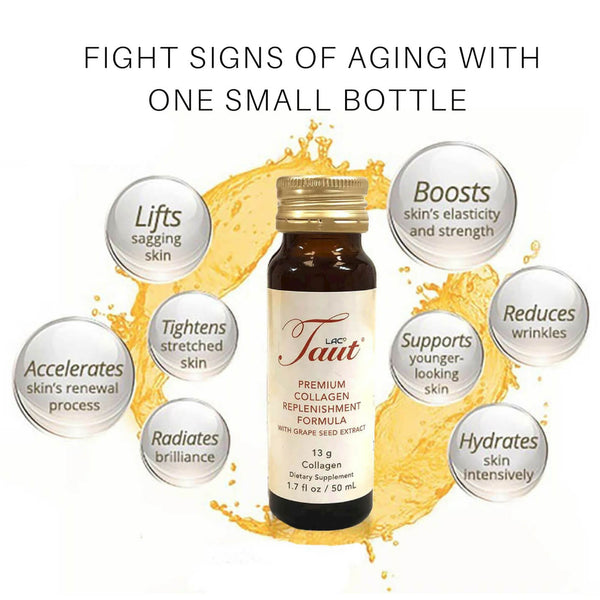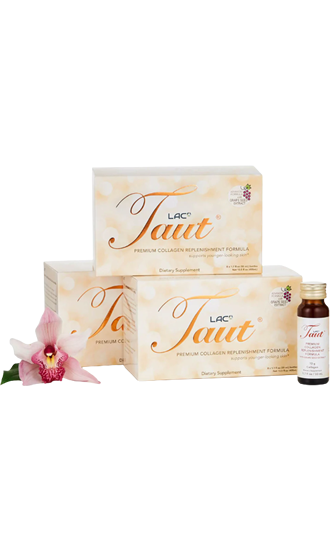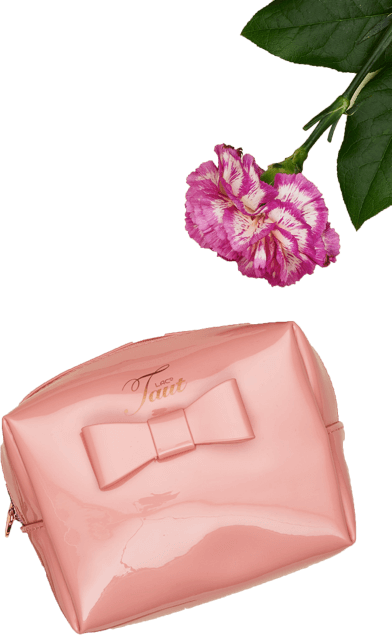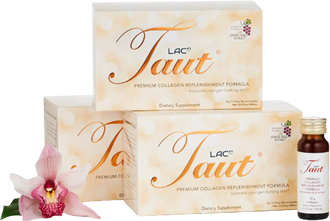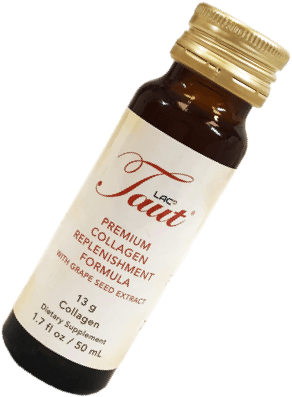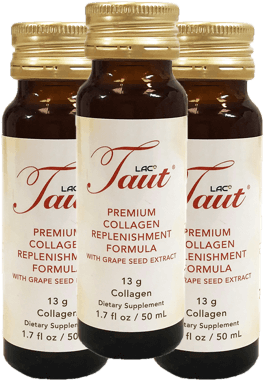The Secret To Conquering Sun Damaged and Premature Skin Aging
Ask the Dietitian: Monica, Dietitian shares her must-have nutrition tips to prevent skin aging.

Let's face it; In many ways, our skin defines us because we care about how we look.
When we have beautiful, healthy skin, we feel happier. When we have problem skin, we feel troubled and uncomfortable with the way our skin appears, and how it makes us 'look'.
It is not by chance that our skin is our largest organ; it is designed to protect us against the external world and harmful microbes, yet it is so fragile and sensitive to internal factors like nutrition, stress, sleep and hormones, and external factors like pollution and sun exposure.
What this means is as our unprotected skin is more exposed to polluted air and the sun's UV rays, we find ourselves suffering more from premature skin aging, spots, wrinkles, lines, uneven pigmentation, eczema, and many other skin conditions and disease.
First, What Is Under Our Skin
Our skin consists of three separate layers: the epidermis, dermis, and hypodermis.
The epidermis is the outermost layer and it’s the only one visible to the naked eye. The middle section, known as the dermis, is what contains elastin, collagen, and hyaluronic acid, connective tissue and other basic components imperative to our skin’s appearance.
The “bottom” layer of our skin is called the hypodermis and it consists of subcutaneous fat that houses larger blood vessels and nerve endings.
All three layers contain collagen and elastin fibers that give your skin flexibility and strength.
More helpful reading by RenewSkin Inc.:
https://www.renewskinco.com/blogs/i/what-is-elastin-and-what-does-elastin-do-for-your-skin
4 Reasons Why You Need Protection from Free Radical Damage with Antioxidants and Collagen Peptides
1. Pollution and UV Rays Cause Free Radical Damage in the Body's Cells, Accelerating Cell Aging.
What are free radicals and where do free radicals come from?
Free radicals are waste compounds produced naturally in our body, very much like when we breathe in oxygen and our lungs exhale carbon dioxide.
Our body is designed to remove this waste compound; it's a natural metabolic waste produced when our cells are working. This normal cycle works well until we put our body under stress, or overexpose it to UV rays, blue light, pollution, bad diet, unhealthy lifestyle, all of which cause inflammation and oxidative stress. This results in an over-production of free radicals (waste) which our body cannot dispose of naturally.
More helpful reading:
https://www.renewskinco.com/blogs/i/is-blue-light-bad-for-your-skin
Why Are Free Radicals Bad?
To put it simply, if you think antioxidants are your cell’s best friends, think of free radicals as their all-time enemy. This is because they destroy our cells and cause premature aging.
Free radicals are highly reactive and unstable. When free radicals don’t get removed, they attach and bind to our normal cells and eventually suffocate them, which leads to cell damage, cell aging, destruction, and even cancer.
What Causes Free Radicals
Pollution, sun's UV rays, stress, poor diet, alcohol, and sugar all contribute to oxidative stress, which results in the excess production of free radicals.
How to Reduce Free Radicals in the Body
All the science is telling us the best way to reduce free radicals is prevention. You can prevent and minimize free radicals' formation by reducing oxidative stress and loading up on antioxidants to fight off the free radicals that remain.
Think of free radicals like your credit card debt. The best ways to reduce your debt are to spend less, save more, and to pay it down.
Therefore, by minimizing activities that can create more oxidative stress which results in free radical production, plus eating more antioxidant-rich foods, vitamins, and supplements, you can prevent and protect your cells from free radical damage, and maintain your optimum skin and vascular health.
More helpful reading: Vitamin A supplement for skin by RenewSkin Inc.
2. Pollution Causes Cell Aging
Dr. Doris Day explains how pollution destroys our skin cells: "The destruction is mostly from oxidative stress, which is defined as an over-production of destructive reactive oxygen species (ROS) and an inability of the body’s natural antioxidant network to neutralize them before they do damage to skin and other organs."
How Does Pollution Impact Your Skin?
There is a great deal of scientific evidence on skin pollution that supports the direct relationship between pollution and acne, as well as fine lines and wrinkles.
Research suggests that the effects of smog on your skin cause free radical damage and can impact the skin in several negative ways:
1. Damages skin’s moisture protective barrier: Pollution causes free radical damage, which damages individual skin cells and impacts the skin’s moisture barrier.
2. Destroys skin collagen and causes fine lines and wrinkles: Pollution also causes irritation, which further impacts the health of skin cells and causes the collagen in your skin to be destroyed at a faster rate than the body can create it. This results in the loss of skin elasticity and firmness, along with more fine lines and wrinkles.
3. Causes skin irritation and hyperpigmentation: Irritation caused by pollution can also ignite the melanocytes in the skin, causing hyperpigmentation spots. It can also cause blood vessels to grow, resulting in excess redness or rosacea.
More helpful reading on how to treat rosacea (Renewskin Co)
4. Triggers acne and other skin diseases: pollution changes skin’s micro-flora, which affects the skin’s barrier function and can cause acne-like eruptions.
What are the benefits of collagen? The good news is you can protect against the damage and repair at least some of the damage done with antioxidants and collagen peptides.
3. UV Rays Cause Free Radicals and Damage Skin Collagen Fibers
As much as we love to bare our skin under the sun for that healthy, bronzed look, it is important to remember the damaging impact UV rays have on our skin and body.
There are 2 types of UV rays: UV-A and UV-B radiation. Both can wreak havoc on your skin and cause premature aging if you aren’t careful. Studies estimate that of all the free radicals found in the skin, 80% of these are directly caused by UV rays or sun exposure.
More helpful reading: Summer skin care tips by RenewSkin Inc.
How UV radiation destroys skin collagen and accelerates skin aging.
UV radiation can cause collagen to break down at a higher rate than normal aging. It does this by penetrating the middle layer of skin (dermis), causing the abnormal buildup of elastin. When these elastin accumulate, enzymes are produced which inadvertently break down collagen and create so-called "solar scars." Continued exposure only speeds the process, leading to further wrinkling and sagging. RenewSkin Inc. explains how to fix turkey neck.
UV radiation is also one of the major creators of free radicals. Free radicals not only increase the number of enzymes that break down collagen, they can alter a cell's genetic material in a way that can lead to cancer.
UV exposure causes the uneven thickening and thinning of the skin called 'solar elastosis', resulting in coarse wrinkling and a yellow discoloration. It can also cause the walls of blood vessels to become thinner, leading to easy bruising and spider veining (telangiectasias) on the face.
More helpful reading from RenewSkin Inc.: What causes wrinkled skin?
Signs of sun-damaged skin on the face and body
The most common sun-induced damage that we can see includes hyper-pigmentation, freckles, and blemishes. A freckle is caused when melanocytes (the skin’s pigment-producing cells) are damaged, leading to enlargement of the blemish.
Larger freckles, also known as age spots, typically appear on the backs of hands, chest, shoulders, arms, and upper back. While age spots are frequently seen in older adults, they are not age-related as their name suggests, but rather a consequence of sun injury. UV exposure can also lead to the appearance of white spots on the legs, hands, and arms as melanocytes are progressively destroyed by solar radiation.
Another most significant sign of sun-damaged skin is the look of 'shoe leather skin', with the formation of deep wrinkles, cracks, dryness and discoloration.
More helpful reading: Sun damage on face
What Premature Aging Skin Looks Like Under a Microscope
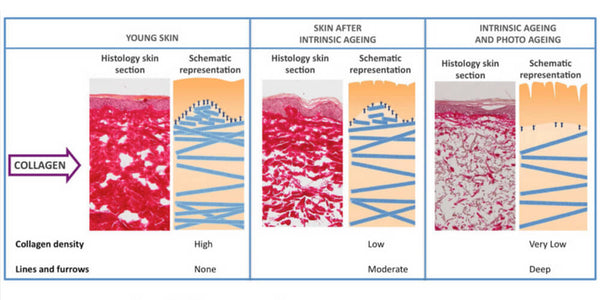
How to rejuvenate sun-damaged skin
Ok. So you've seen your skin turn red from a sunburn, then get flaky, maybe some scarring, and the worst yet, dryness, uneven pigmentation, and wrinkles. When it comes to treating sun-damaged skin, the best sun-damaged skin repair remedies are to heal from the outside in (short-term) and from the inside out (long-term).
In the short-term, to soothe redness and heal your skin, try aloe vera gel and a collagen mask. A good quality collagen mask can infuse collagen peptides directly into your dermis layer and provide instant healing—it tones, hydrates, rejuvenates. Many spas also use collagen masks after micro-needling, to provide instant healing effects.
When it comes to long-term remedies to reverse sun damaged skin, antioxidants are your first line of defense inside the body as they assist to fight the harmful effects of free radicals caused by the sun's UV rays.
The second best line of defense is to strengthen and repair your damaged skin collagen with the best collagen supplement for your skin that will not only stimulate new collagen growth but will also reverse signs of aging.
4. Sunscreen is Not Enough Protection to Fight Against UV Rays and Pollution.
Most of us wear topical sunscreen, and when you don’t get sunburned, you believe your skin is adequately protected from the sun and the harsh UV rays. Unfortunately, this is often not the case.
According to the American Cancer Society, sunscreen should not be used as a way to prolong your time in the sun. Even with proper sunscreen use, some UV rays still get through. Because of this, sunscreen should not be thought of as your first line of defense.
Many sunscreens don’t provide sufficient protection from UV-A rays. While UV-B rays are the primary cause of sunburns and pre-cancerous DNA mutations, UV-A rays cause more subtle damage. UV-A rays penetrate deeply into skin tissue and generate free radicals that destroy collagen from within.
More helpful reading:
https://www.renewskinco.com/blogs/i/skin-blemishes
The Only Defense for Your Skin is an Internal Defense.
Antioxidants protect your skin and skin cells from the destruction of free radical damage, whereas collagen helps to strengthen collagen fibers and protect the integrity of your skin structure.
What Are Antioxidants?
According to Self magazine, “'Antioxidants' is one of those buzzwords that gets thrown around a lot, even though most people don’t fully understand what it means."
As Lauri Wright, Ph.D., R.D., L.D., assistant professor of nutrition at the University of South Florida explains, “Antioxidants are a compound naturally found in many foods, especially plants. They help ward off cell damage by 'cleaning up' or removing waste products in our cells, called free radicals, before they can do harm."
How antioxidants work
In one of the findings by Penn State University, free radicals damage body tissues by stealing electrons from the atoms that constitute the tissues. Antioxidants provide the free radicals with electrons, protecting body tissues from free radical damage.
When we eat foods that are high in antioxidants or antioxidant vitamins, Dr. Lauri Wright explains "the antioxidants are released from the foods and vitamins we eat through digestion and travel through the bloodstream and into cells, where they do their work on free radicals.”
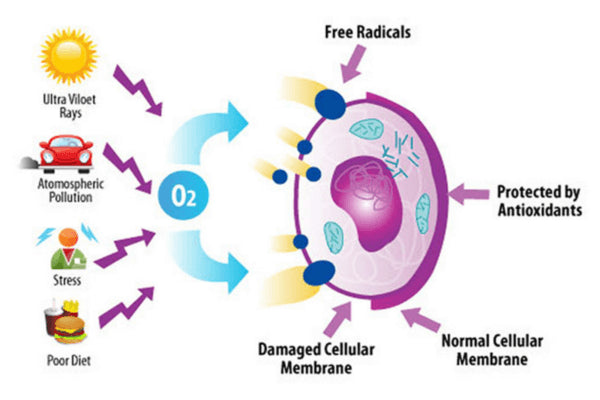
Does our body produce antioxidants naturally?
New research shows our cells produces some of the needed antioxidants naturally to fight free radicals.
However, our body's ability to produce antioxidants (its metabolic process) is controlled by our age, genetic makeup, and influenced by how much exposure we have to environmental factors, such as diet, smoking, pollution and sun exposure.
For example, Glutathione is considered the body’s most important antioxidant because it’s found within the cells and helps boost activities of other antioxidants or vitamins.
As we age, our body's internal production of antioxidants is not enough to neutralize all the free radicals being produced. Also, as we have more exposure to factors that trigger the formation of free radicals, our body simply can’t keep up.
We can help our body defend itself by increasing our dietary intake of antioxidants.
Natural Antioxidants Found in Fruits, Nuts, Vegetables, and Chocolate.
Antioxidants come in several forms, including vitamins A, C, and E; plant-derived polyphenols, found in colorful fruits and vegetables; and also the element selenium, found in nuts and broccoli.
"What these compounds share," explains K. Sandeep Prabhu, Penn State assistant professor of immunology and molecular toxicology, "is the ability to neutralize harmful molecules in our cells."
Different types of antioxidants most abundant in foods:
Flavanols and polyphenols: dark chocolate
Lycopene: tomatoes
Phytochemicals like carotenoids, flavonoids, terpenes: citrus fruits, oranges, grapefruits, lemons and limes, grapes, blueberries
Camellia sinensis: green and black tea, but mostly in unprocessed green tea
Beta-carotene: carrots
O.P.C.: grape seeds and French pine bark
Different Antioxidants Benefit Different Parts of the Body
As each antioxidant works on and benefits specific parts of our body, there are many antioxidant vitamins and supplements to choose from.
Look for antioxidant compounds in your supplement to support your areas of concerns, like skin health, vascular health, and for strengthening your immune system.
Example, CoQ10 is great for vascular health vs OPC and lycopene which work best for protecting your skin.
Top 5 Antioxidant Benefits for Skin Health
1. Prevents breakdown of collagen and elastin
2. Reduces inflammation
3. Neutralizes free radicals
4. Helps repair cell damage
5. Strengthens and protects your skin cells
Best Antioxidant Supplement for Skin Health Includes
One especially potent antioxidant that is clinically tested is O.P.C. (Oligomeric Proanthocyanidin Compounds), extracted from the bark of the French maritime pine tree and grape seeds.
OPC is one of the most clinically studied compounds due to its powerful antioxidant properties. It is 50 times more powerful than vitamin E and 20 times more powerful than vitamin C. OPC protects and repairs cells from the damage caused by free radicals. Supplementing with OPC has been proven to increase skin hydration, elasticity, and smoothness while combating collagen degradation and wrinkles.
Besides OPC derived from French Pine Bark, grape seed extracts also contain a high concentration of Polyphenols (or OPC), known for their job of binding to collagen fibers and protecting skin cells from free radical damage.
More helpful reading on essential oil for skin by Renew Alliance.
With All the Benefits from Antioxidants, Do You Still Need Collagen?
Yes, you do!
Collagen is a very important structural protein in our bodies, found in tendons and ligaments, cartilage, bones, blood vessels, and of course skin. In the skin, it is the major protein found in the matrix, with elastin and hyaluronic acid. Which basically means it is a key component to making your skin looking young by maintaining its structure and shape over time.
The collagen family consists of 28 types of collagen, and different types are put to work in our bodies in different ways. When it comes to skin, when we are young it is made of 80% type I collagen and about 15% type III collagen. In our adult years (around age 30), we begin to lose the natural ability to replenish collagen by about 1.5% per year, and the collagen we maintain becomes thicker and shorter, ultimately decreasing the structure and elasticity of the skin. And sun damage only further exacerbates this process, contributing to the premature aging of skin.
The good news is we can give our bodies a little extra help when it comes to collagen replenishment to support our skin.
Benefits of Collagen Peptides
A collagen molecule is made up of 20 amino acids that are bound together in a helix chain. Collagen is composed of a triple helix, consisting of two identical chains and a third chain with a slightly different composition.
As it naturally occurs, this molecule is too large to penetrate the surface of the skin or be absorbed into the bloodstream when ingested. Therefore, in order for collagen supplements to be effective, the collagen molecule needs to be altered so it can be absorbed.
By adding a high quality collagen supplement that includes best type of collagen for skin, which contains mostly type I collagen hydrolysate (also called 'collagen peptides' or 'hydrolyzed collagen') plus other skin-loving ingredients, you can provide your body with some of the most important building blocks to help maintain the health of your skin matrix.
There are many clinical studies conducted on the efficacy of collagen peptides which demonstrate how ingesting 10,000mg marine hydrolyzed collagen daily for 8 weeks can help improve skin density and reduce fine lines and wrinkles.
More helpful reading: Is coconut oil good for your skin?
Visible Benefits include
- reduced fine lines and wrinkles
- improved skin elasticity and firmness
- improved skin hydration and radiance
- healing of scars, wounds, and skin related issues
Taut Premium Collagen Drink fits this bill. Each tiny 1.7oz shot contains an amazing 13,000mg of premium marine collagen peptides (90% type I collagen; 10% type III) with 6 key skin-loving ingredients guaranteed to deliver maximum skin rejuvenation.
Protect and Prevent Premature Skin Aging with the Best Collagen Peptides and Antioxidants That Work From Within.
When it comes to all year round optimum skin health and the best prevention against premature skin aging, antioxidants and collagen combined are your best and most effective first line of defense.
Together they give our body the needed tools to fight the harmful effects of free radicals plus strengthen and support our skin integrity. Studies estimate that of all the free radicals found in the skin, 80% of these are directly caused by UV rays or sun exposure.
Therefore, our skin needs all the help it can get to help combat the negative effects of free radicals to not only help in preventing serious conditions such as skin cancer but also to help prevent premature aging.
In addition to a healthy, plant-based diet, supplements can certainly be beneficial in supporting antioxidant activity in the skin, especially those rich in flavonols and polyphenols.
One of the most powerful antioxidants for skin now available is Masquelier’s® French Pine Bark Extract + Original OPCs, made in The Netherlands. Masquelier's is a powerhouse antioxidant supplement that is rich in flavonols and polyphenols, and not only supports skin health by protecting collagen fibers from free radical damage but also protect your blood vessels and improves circulation.
Why Antioxidants with the Best Collagen Peptides Work Best for Your Skin.
Topical creams, serums and sunscreens sit on the surface of our skin (the epidermis layer) and do not penetrate deep into the dermis to really benefit our overall skin structure and health.
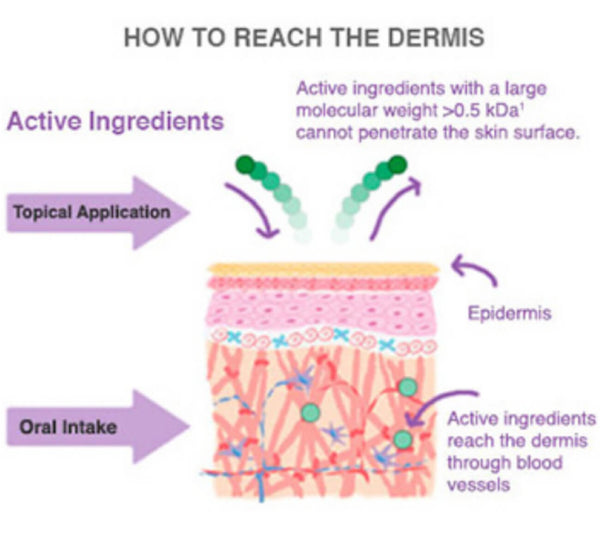
Treat and Heal Your Skin from the Inside Out with the Best Collagen Antioxidant Program - Taut Collagen Replenishment Formula + Antioxidants.
Taut Premium Collagen Drink Advanced Formula combines the synergistic power of high potency Hydrolyzed Collagen with grape seed extract and 5 other skin-loving ingredients that have been shown to solve the most common skin problems.
- 13,000mg Marine Collagen Peptides to firm, tone, and restore
- Hyaluronic Acid to hydrate and nourish skin
- Elastin to improve skin elasticity
- Grape Seed Extract to heal and protect from free radical damages
- Ceramides to protect skin and maintain moisture
So, by all means, get out there this summer and enjoy the sun and warmth, but make sure you are taking care of your skin at the same time! Never skimp on sunscreen (and reapplying as needed), make fruits and vegetables the base of all meals, and supplement your diet with a powerful collagen drink and antioxidant supplement for the ultimate skin protection plan.
And if that sounds complicated, it doesn’t have to be! The latest unique summer package, the ANTI-OXY FOXY KIT, provides 24 bottles of Taut Premium Collagen, plus 50 capsules of Masquelier’s® French Pine Bark Extract.
So all you need to remember is sunscreen and a balanced diet – let the Anti-oxy Foxy Kit take care of the rest!
What customers are saying
Taut Collagen AntiOxy Foxy Kit
All products are wonderful!
"Honestly, initially I was really not sure what to expect from these antioxidant tablets. I started with 1 tablet a day as suggested. 3rd day of the course I was surprised to see that the small bumps around the chin area started to diminish, and no I was not doing any treatment for that. The only new thing was adding these supplements. The plus point is it is all natural. Now I feel I can really trust this brand blindly and wish they add few more products from this brand." Aditi SAwesome!!!
"Love my new Taut USA!!! Look years younger than 53!!!" Lara S
Pleased with Taut!
"I've tried a couple of different collagen formulas, but Taut is, by far the best. At 71 years old, my skin needs all the help it can get. With Taut, my skin looks and feels younger, firmer. Even my dermatologist commented on how good my skin is looking. I have also been happy with the customer service. I get regular updates and the product always arrives as scheduled. The only drawback is the cost, but I have to say that the regular specials have helped with that." Kate W
SHOP Taut Collagen Antioxy Foxy Kit - Look and Feel Years Younger


